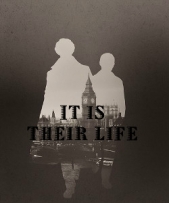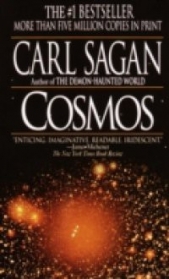The Schopenhauer Cure

The Schopenhauer Cure читать книгу онлайн
Внимание! Книга может содержать контент только для совершеннолетних. Для несовершеннолетних чтение данного контента СТРОГО ЗАПРЕЩЕНО! Если в книге присутствует наличие пропаганды ЛГБТ и другого, запрещенного контента - просьба написать на почту [email protected] для удаления материала
Lyon, he remarked on the sight of people walking indifferently over the very spot where
their fathers and brothers were killed during the French Revolution.
At a boarding school in Wimbledon where Lord Nelson had once been a student in
England, Arthur perfected his English and attended public executions and naval
floggings, visited hospitals and asylums, and walked by himself through the massive
teeming slums of London.
The Buddha as a young man lived in his father`s palace, where the common lot of
mankind had been veiled from him. It was only when he first journeyed outside of his
father`s palace that he saw the three primal horrors of life: a diseased person, a decrepit
old man, and a corpse. His discovery of the tragic and terrible nature of existence led the
Buddha to his renunciation of the world and the search for a relief from universal
suffering.
For Arthur Schopenhauer, too, early views of suffering profoundly influenced his
life and work. The similarity of his experience to that of the Buddha was not lost on him,
and years later, when writing about his journey, he said, «In my seventeenth year, without
any learned school education, I was gripped by the misery of life, just like Buddha in his
youth, when he saw sickness, pain, aging, and death.»
Arthur never had a religious phase; he had no faith but, when young, had a will to
faith, a wish to escape the terror of a totally unobserved existence. Had he a belief in the
existence of God, though, it would have been sorely tested by his teenaged tour of the
horrors of European civilization. At the age of eighteen he wrote, «This world is
supposed to have been made by a God? No, much better by a devil!»
13
_________________________
When,at the end of their
lives, most men look back they
will find that they have lived
throughout ad interim. They
will be surprised to see that
the very thing they allowed to
slip by unappreciated and
unenjoyed was just their life.
And so a man, having been
duped by hope, dances into the
arms of death.
_________________________
The trouble with a kitten is that
Eventually it becomes a cat.
The trouble with a kitten is that
Eventually it becomes a cat.
Jerking his head to dislodge the annoying couplet from his mind, Julius sat up in bed and
opened his eyes. It was 6A.M. , a week later, the day of the next group meeting, and those
odd Ogden Nash lines looping around in his mind had been the background music for yet
another night of unsatisfying sleep.
Though everyone agrees that life is one goddamned loss after another, few know
that one of the most aggravating losses awaiting us in later decades is that of a good
night`s sleep. Julius knew that lesson all too well. His typical night consisted of tissue–thin dozing which almost never entered the realm of deep, blessed delta–wave slumber, a
sleep that was interrupted by so many awakenings that he often dreaded going to bed.
Like most insomniacs, he awoke in the morning believing either that he had slept far
fewer hours than he actually had or that he had been awake all night long. Often he could
assure himself that he had slept only by carefully reviewing his nocturnal thoughts and
realizing that he would never, in a waking state, have ruminated at such length about such
bizarre, irrational things.
But this particular morning he was entirely confused about how much he had slept.
The kitten–cat couplet must have emerged from the dream realm, but his other nocturnal
thoughts fell into a no–man`s–land, with neither the clarity and purposefulness of full–fledged consciousness nor the quirky caprice of dream thoughts.
Julius sat in bed, reviewing the couplet with his eyes closed, following the
instructions he offered patients to facilitate the recall of nighttime fantasies, hypnagogic
images, and dreams. The poem was pointed at those who loved kittens but not their
coming to age as cats. But what did that have to do with him? He loved kittens and cats
alike, had loved the two adult cats in his father`s store, loved their kittens and their
kittens` kittens, and couldn`t understand why the couplet lodged in his mind in such
tiresome fashion.
On second thought, perhaps the verse was a grim reminder of how, all his life, he
had embraced the wrong myth: namely, that everything about Julius Hertzfeld—his
fortune, stature, glory—was spiraling upward, and that life would always get better and
better. Of course, now he realized that the reverse was true—that the couplet had it
right—that the golden age came first, that his innocent, kittenly beginnings, the
playfulness, the hide–and–seek, the capture–the–flag games, and the building of forts out
of the empty liquor boxes in his father`s store, while unburdened by guilt, guile,
knowledge, or duty, was the very best time of life and that as the days and years passed,
the intensity of his flame dimmed, and existence grew inexorably more grim. The very
worst was saved for last. He recalled Philip`s words about childhood in the last meeting.
No doubt about it: Nietzsche and Schopenhauer had that part right.
Julius nodded his head sadly. It was true he had never truly savored the moment,
never grasped the present, never said to himself, «This is it, this time, this day—this is
what I want! These are the good old days, right now. Let me remain in this moment, let
me take root in this place for all time.» No, he had always believed that the juiciest meat
of life was yet to be found and had always coveted the future—the time of being older,
smarter, bigger, richer. And then came the upheaval, the time of the great reversal, the
sudden and cataclysmic deidealization of the future, and the beginning of the aching
yearning for what used to be.
When was that reversal? When did nostalgia replace the golden promise of
tomorrow? Not in college, where Julius considered everything as prelude (and obstacle)
to that grand prize: admission to medical school. Not in medical school, where, in his first
years, he yearned to be out of the classrooms and onto the wards as a clinical clerk, with
white jacket and stethoscope hanging out of pocket or slung casually about his neck like a
steel–and–rubber shawl. Not in the clerkships of his third and fourth medical school years,
when he finally took his place on the wards. There he yearned for more authority—to be
important, to make vital clinical decisions, to save lives, to dress in blue scrubs and
careen a patient on a gurney down the corridor to the OR to perform emergency trauma
surgery. Not even when he became chief resident in psychiatry, peeked behind the curtain
of shamanism, and was stunned at the limits and uncertainty of his chosen profession.
Without doubt Julius`s chronic and persistent unwillingness to grasp the present
had played havoc with his marriage. Though he had loved Miriam from the moment he
laid eyes on her in the tenth grade, he simultaneously resented her as an obstacle blocking
him from the multitude of women he felt entitled to enjoy. He had never completely
acknowledged that his mate–search was over or that his freedom to follow his lust was in
the slightest way curtailed. When his internship began he found that the house staff
sleeping quarters were immediately adjacent to the nursing school dorm brimming with
nubile young nurses who adored doctors. It was a veritable candy store, and he stuffed























